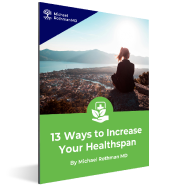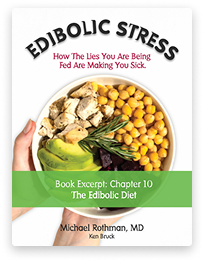“Heartburn, nausea, indigestion, upset stomach, diarrhea… yay Pepto Bismol!” Are you are all too familiar with this Jingle? Are reaching for over the counter medication to relieve digestive ailments frequently? You may be joining the ranks of a combined 7%to 10% of the world’s population who also suffer from Irritable Bowel Syndrome.
What is Irritable Bowel Syndrome (IBS)?
Irritable bowel syndrome commonly known as IBS is an all too common disorder that affects your large intestine or colon. As a functional bowel disorder, IBS has no known biological cause, and this condition is a symptom based diagnosis. Contrary to pathological disorders such as inflammatory bowel disease like ulcerative colitis or Crohn’s disease, functional disorders such as IBS reveal no evidence of disease when a biopsy sample is reviewed under the microscope.. Consequently, IBS is a default diagnosis given to a state of gastrointestinal dysfunction and categorizes a range of symptoms. IBS commonly causes you to feel cramping, abdominal pain, bloating gas and suffer from diarrhea and constipation.
What Causes IBS?
Every case of IBS is different, but many of your symptoms are caused by an imbalance in your autonomic nervous system (ANS). If your autonomic nervous system is not stable, then your bowel function certainly is not stable either. Your ANS controls various functions in your body and is made up of two opposing branches, your sympathetic nervous system (SNS) and your parasympathetic nervous system (PNS). Your sympathetic system paralyzes your bowel. For example, when you are in a stressful, life threatening situation, your “fight or flight” sensors kick in and your SNS deactivates your food digestion. Your parasympathetic system, conversely help you digest food. When you have volatility in your ANS, the pendulum swings back and forth from your sympathetic system (causing constipation, heartburn, indigestion and other symptoms) to your parasympathetic system (causing diarrhea, bloating, gas, indigestion, cramps and other symptoms). Instability in your ANS may be triggered by excessive stressors such as poor quality diet, unrecognized food and environmental allergies, hormonal imbalances, stressful lifestyle, medications and other stressors.
Why does IBS affect women more than men?
Studies show that IBS affects twice as many women as it does men. The underlying cause of a female predilection for IBS is that high levels of estrogen in your body lead to excessive parasympathetic tone. This parasympathetic overload in your autonomic nervous system will cause your body to increase your food digestion, produce a tendency for diarrhea, and subsequent cramping in your colon. If you come in for a consultation with Dr. Rothman, he will analyze your body chemistry for an estrogen imbalance. He may prescribe a dietary and nutritional program to help mediate any excessive estrogen (or low progesterone) and excessive parasympathetic tone you may have.
How does taking antibiotic medication contribute to IBS?
Your body is made up of billions of microbial colonies found in the digestive system, which carry a symbiotic relationship. These beneficial bacteria help aide your body in a series of necessary functions vital to digestion. When you digest food, the bacteria in your bowels also digest that food. As a by-product, the good bacteria (also known as beneficial bowel flora) produce vitamins and minerals. Any “bad” bacteria present in your system will excrete toxins as their metabolic by-products. When your intestinal floral balance is disturbed, it represents an overgrowth of distressed, pathological microbial colonies in your body. Sugar, unhealthy foods, and antibiotics are the main culprits in creating an imbalance in your bowel flora thus reducing the production of beneficial microbial by products while simultaneously increasing the production of toxins in your gastrointestinal system. Antibiotics, while taken with the intention to fight off infection, kill bacteria in your digestive system including your beneficial bowel flora. If you continue to harm your body by digesting poor quality foods, the imbalance of bacteria in your digestive system may weigh heavily with “bad” bacteria. As your imbalance becomes more pronounced, it leads to a vicious cycle of overgrowth of more pathological microorganisms.
How do you treat IBS, naturally?
Given that IBS and upset digestive health can be a side effect of taking antibiotic (and perhaps other medications) it is important to understand that there is a treatment plan that does not require taking MORE medication. When you come in for a consultation with Dr. Rothman, he will check your body chemistry and analyze any hormonal imbalances that may be disrupting your digestive health. Dr. Rothman will immediately review with you a diet and nutrition plan that will eliminate any edibolic stress on your body. Edibolic stressors include excess carbohydrates, sugars, vegetable oils, burnt and processed meats, fried foods, pesticides, insecticides and other food additives. Incorporating a balanced diet of wholesome, organic vegetables, dairy, meats and other healthy foods will drastically change your symptoms of IBS.
Do eating small meals help IBS symptoms?
Many main stream professionals will suggest that you eat multiple small meals that are low in fat and high in carbohydrates. This is a big mistake! When you follow a nutritional plan that is low in fat, and high in carbohydrates this causes your blood sugar to spike. When your blood sugar increases, this triggers your body to release insulin. Insulin activates your parasympathetic nervous system and causes your bowel to become hyperactive. However, it is sound advice to not overeat as overeating puts a stress on your gastrointestinal system. . More importantly your goal should be to keep your blood sugar stable, thus maintaining the balance in your autonomic nervous system. A balanced meal of equal parts saturated fat, lean protein, and light starch will put a log in your metabolic fire, facilitate a stable blood sugar, and hence a stable ANS and keep you from overeating.
How does stress affect IBS?
Have you ever heard the term “Sick to my stomach”? If you eat a big meal then receive emotional news, your body will not digest the food properly, causing your bowel to become dysfunctional. Stress has been linked to stimulate colon spasms in your body. Your colon has many nerves connected to your brain, which causes normal contractions of your colon. If you are suffering from IBS, even the slightest anxiety or stressor can cause a responsive colon spasm. Stress has also been known to cause your mind to be more aware of uncomfortable symptoms, and in turn cause more stress and turmoil. This vicious merry- go-round can turn into a predictable pattern in which you find it difficult to get off the ride. If you suffer from IBS, it is essential to participate in stress reduction and relaxation techniques. Yoga and meditation is extremely helpful in managing stress, as well as regular exercise.
IBS symptoms affect millions of people in this world, and its influence can often be debilitating. Your IBS ailments are most likely to arise when your body is no longer in a state of balance. Instability of your autonomic nervous system will send your body into tail spins of additional metabolic stress. Therefore, the best way to eliminate the onset of IBS symptoms is to reduce the overall stress on your body. Only by working with Dr. Rothman, can you devise a strategy composed of eating wholesome foods paired with a metabolically directed approach that holistically balances your digestive chemistry and your overall wellness.
Are you suffering from IBS symptoms? Come in for a consultation with Dr. Rothman by calling, 732-268-7663 and discover the root cause of your Irritable Bowel Syndrome.










